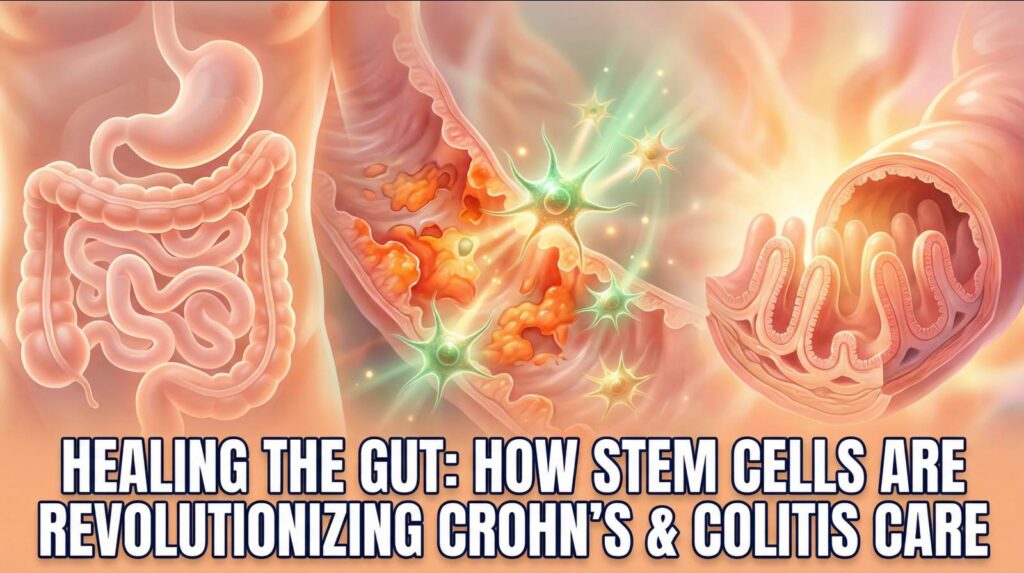Have you ever wondered why a good night’s sleep feels so restorative?
The answer may lie in the profound connection between sleep and stem cells.
This article explores how sleep influences these vital cells and what that means for your health.
How Sleep Regulates Stem Cell Activity
Our bodies operate on a 24-hour internal clock known as the circadian rhythm. This rhythm governs many physiological processes, including the activity of our stem cells [1].
Stem cells are the body’s raw materials, cells from which all other cells with specialized functions are generated.
During sleep, our bodies are in a state of repair and regeneration. This is when stem cells are most active, working to replenish and repair tissues throughout the body.
The physiological changes during sleep create a suitable microenvironment for stem cells to proliferate, migrate, and differentiate [2].
The Impact of Sleep Deprivation on Stem Cells
When we don’t get enough sleep, this delicate process is disrupted. Research from Stanford University shows that even a small amount of sleep deprivation can have a significant impact on stem cell function.
A sleep deficit of just four hours can reduce the ability of hematopoietic stem cells (HSCs) to migrate to the bone marrow by as much as 50 percent [3]. HSCs are responsible for creating all the cells in our blood and immune system.

The Role of Hormones
Sleep also plays a crucial role in regulating the hormones that influence stem cell activity. Melatonin, a hormone produced during sleep, has been shown to stimulate stem cell proliferation and self-renewal [4]. On the other hand, cortisol, a stress hormone, can have a negative impact on stem cell function.
Stem Cell Hibernation
To avoid exhaustion, stem cells can enter a state of hibernation known as reversible quiescence. Research from Harvard University has identified a protein called Sprouty1 that plays a key role in this process [5]. Without Sprouty1, the stem cell pool can be rapidly depleted, especially after an injury.
Long-Term Consequences of Sleep Loss
A consistent lack of sleep can have long-lasting effects on our health. A study from Mount Sinai found that chronic sleep loss alters the DNA structure within immune stem cells, leading to an increased risk of inflammatory disorders and cardiovascular disease [6]. The study also found that catching up on sleep does not reverse these changes.
Improving Your Sleep for Better Health
Given the deep connection between sleep and stem cells, it’s clear that getting enough quality sleep is essential for our overall health and well-being. Here are a few tips to improve your sleep:
•Stick to a regular sleep schedule: Go to bed and wake up at the same time each day, even on weekends.
•Create a relaxing bedtime routine: Take a warm bath, read a book, or listen to calming music before bed.
•Make sure your bedroom is dark, quiet, and cool: These conditions are ideal for sleep.
•Avoid caffeine and alcohol before bed: These substances can interfere with sleep.
By prioritizing sleep, you can support your body’s natural ability to repair and regenerate, ensuring that your stem cells can do their job effectively.
References
[1] Moradi, S., Nouri, M., Moradi, M. T., Khodarahmi, R., Zarrabi, M., & Khazaie, H. (2025). The mutual impacts of stem cells and sleep: opportunities for improved stem cell therapy. Stem Cell Research & Therapy, 16(1), 157. https://pmc.ncbi.nlm.nih.gov/articles/PMC11954214/
[2] Elkhenany, H., AlOkda, A., El-Badawy, A., & El-Badri, N. (2018). Tissue regeneration: Impact of sleep on stem cell regenerative capacity. Life sciences, 214, 51–63. https://www.sciencedirect.com/science/article/abs/pii/S002432051830688X
[3] Conger, K. (2015, October 14). Sleep deprivation affects stem cells, reducing transplant efficiency. Stanford Medicine. https://med.stanford.edu/news/all-news/2015/10/sleep-deprivation-affects-stem-cells-reducing-transplant-efficiency.html
[4] Hardeland, R. (2022). Melatonin and the Programming of Stem Cells. International journal of molecular sciences, 23(4), 1971. https://pmc.ncbi.nlm.nih.gov/articles/PMC8879213/
[5] Harvard Stem Cell Institute. (n.d.). Stem cells need time to sleep. https://www.hsci.harvard.edu/stem-cells-need-time-sleep
[6] Mount Sinai. (2022, September 21). A Consistent Lack of Sleep Negatively Impacts Immune Stem Cells, Increasing Risk of Inflammatory Disorders and Heart Disease. https://www.mountsinai.org/about/newsroom/2022/a-consistent-lack-of-sleep-negatively-impacts-immune-stem-cells-increasing-risk-of-inflammatory-disorders-and-heart-disease


